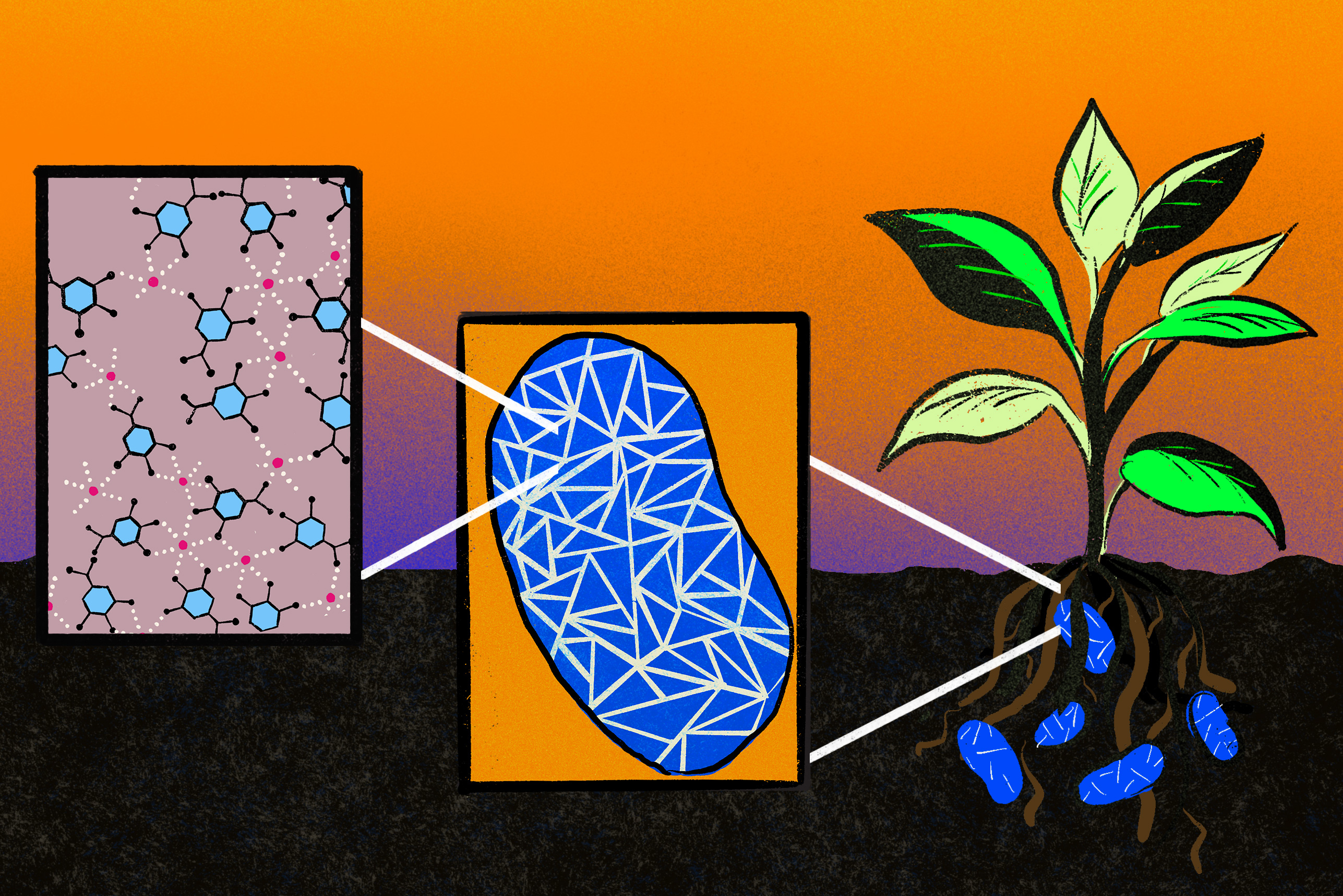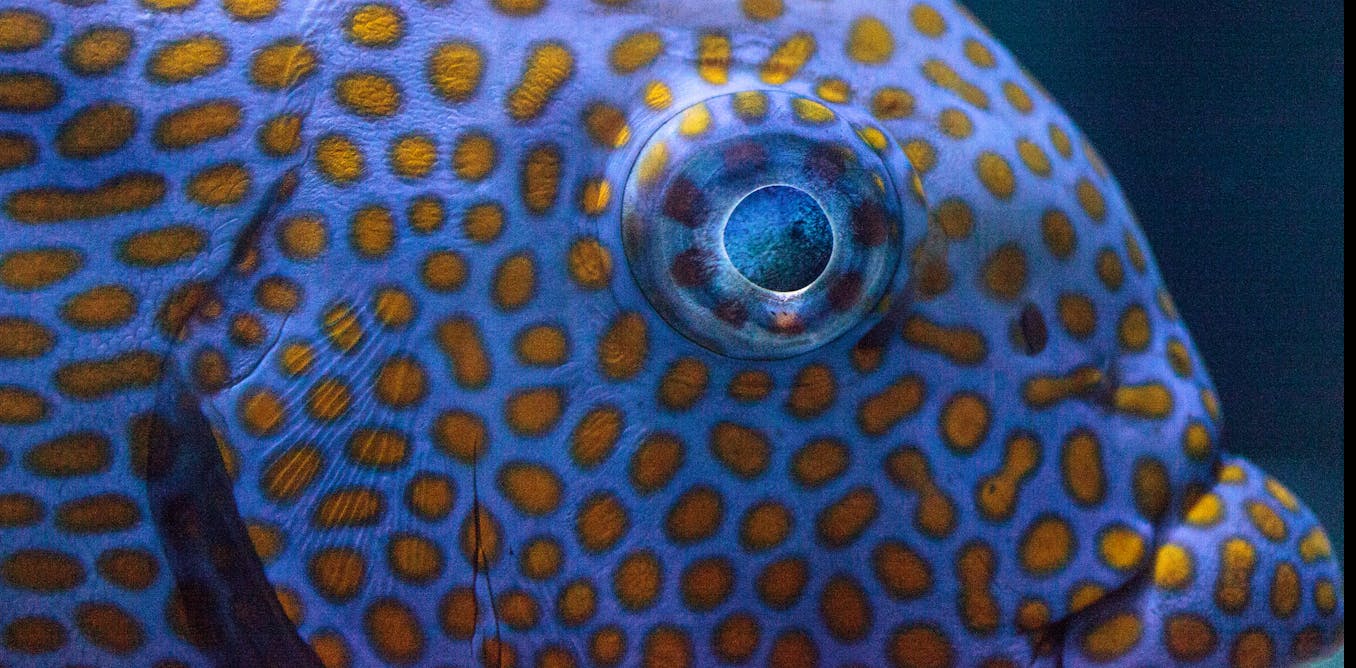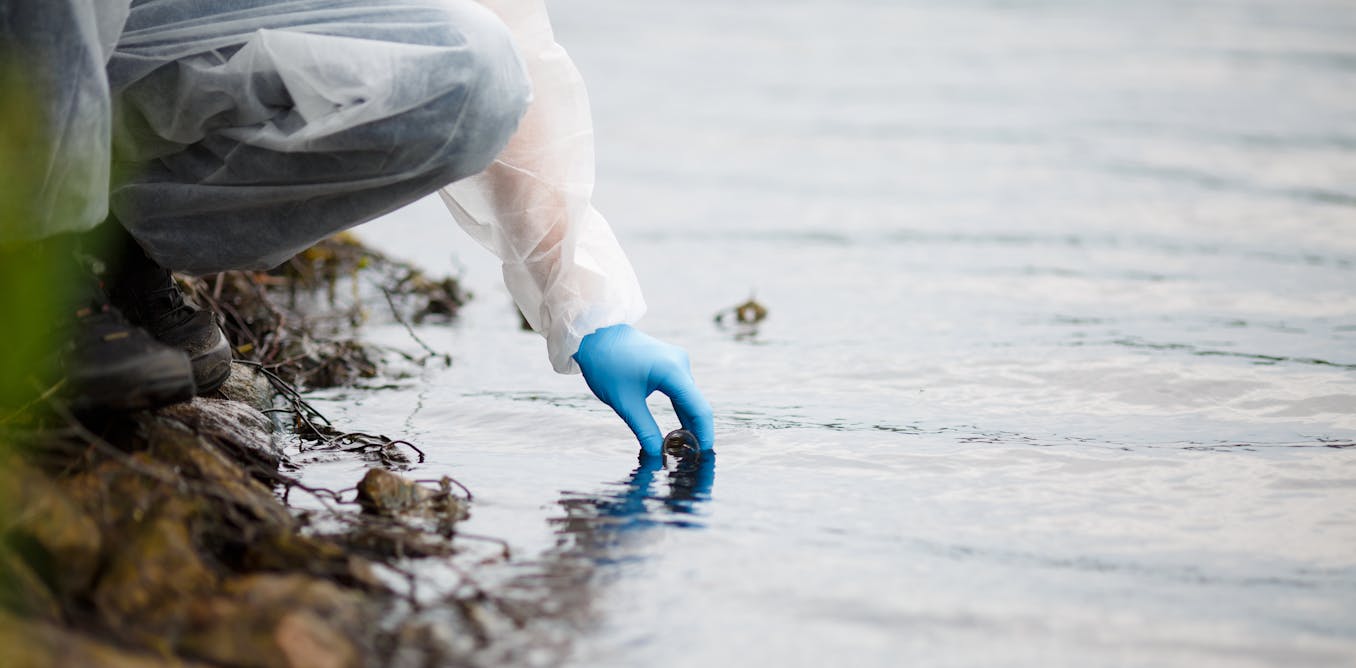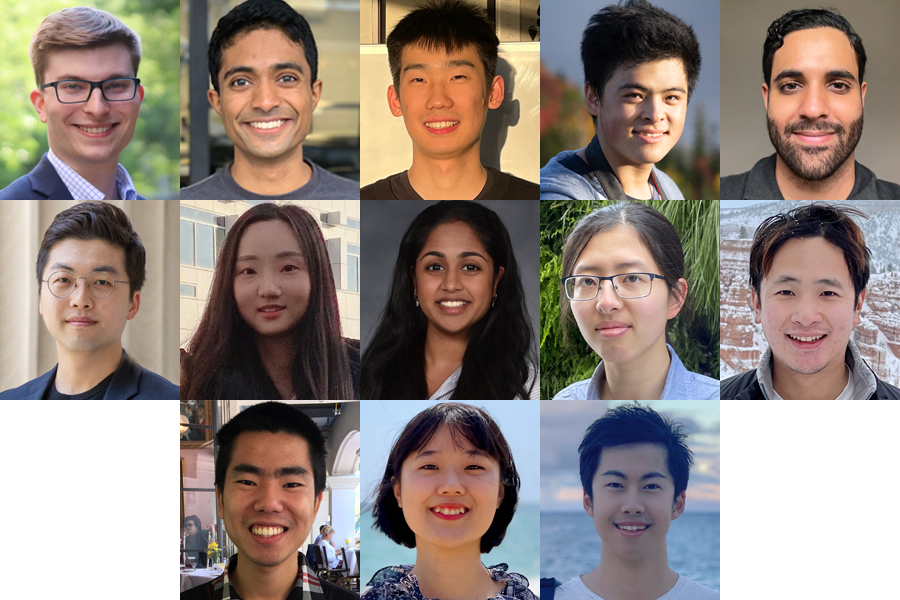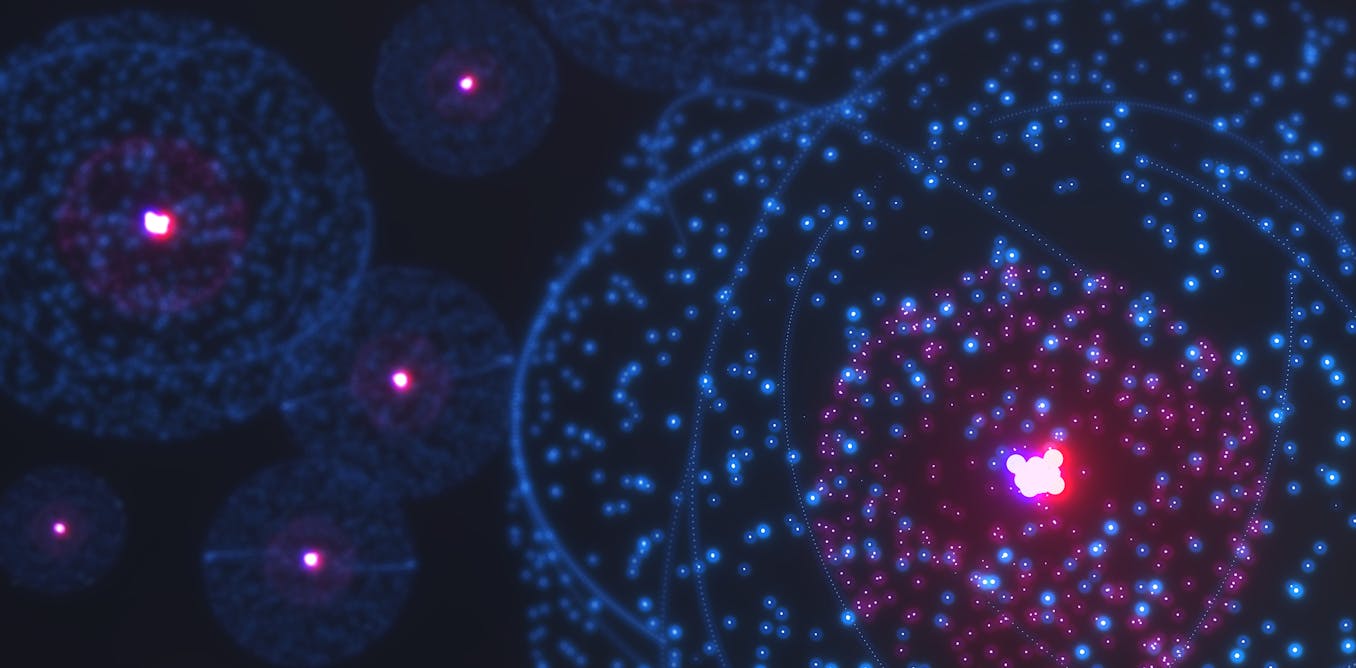PFAS 'forever chemicals' are getting into ocean ecosystems, where dolphins, fish and manatees dine – we traced their origins
Scientists found PFAS hot spots in Miami’s Biscayne Bay where the chemicals are entering coastal waters and reaching the ocean. Water samples point to some specific sources.
Nov. 14, 2023 • ~7 min
How PFAS 'forever chemicals' are getting into Miami's Biscayne Bay, where dolphins, fish and manatees dine
Scientists discovered PFAS hot spots in the bay and found PFAS in water along the Atlantic coast. In a new study, they traced the chemicals’ origins to help stop the harm.
Nov. 14, 2023 • ~7 min
How animals get their skin patterns is a matter of physics – new research clarifying how could improve medical diagnostics and synthetic materials
Understanding how the intricate spots and stripes, or Turing patterns, of many animals form can help scientists mimic those processes in the lab.
Nov. 8, 2023 • ~8 min
Only 1% of chemical compounds have been discovered – here's how we search for others that could change the world
The limitless world of chemistry and how researchers investigate it.
Oct. 17, 2023 • ~8 min
What is an attosecond? A physical chemist explains the tiny time scale behind Nobel Prize-winning research
Three scientists won the 2023 Nobel Prize in physics for their work developing methods to shoot laser pulses that only last an attosecond, or a mind-bogglingly tiny fraction of a second.
Oct. 4, 2023 • ~5 min
'Design of Coffee' course teaches engineering through brewing the perfect cup of coffee
In an engineering course at UC Davis, students learn all the nuances that go into brewing ‘a truly excellent cup of coffee.’
Sept. 25, 2023 • ~5 min
/
61

